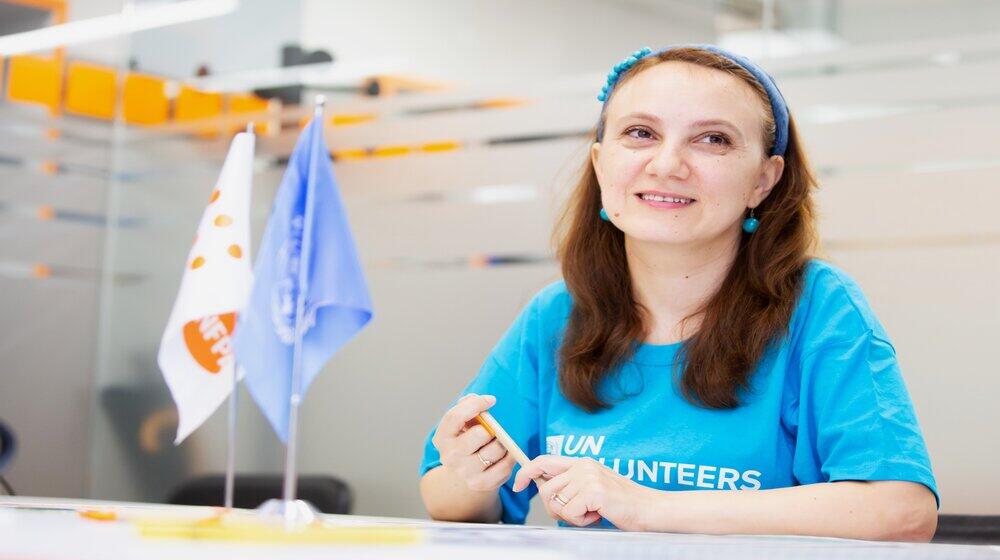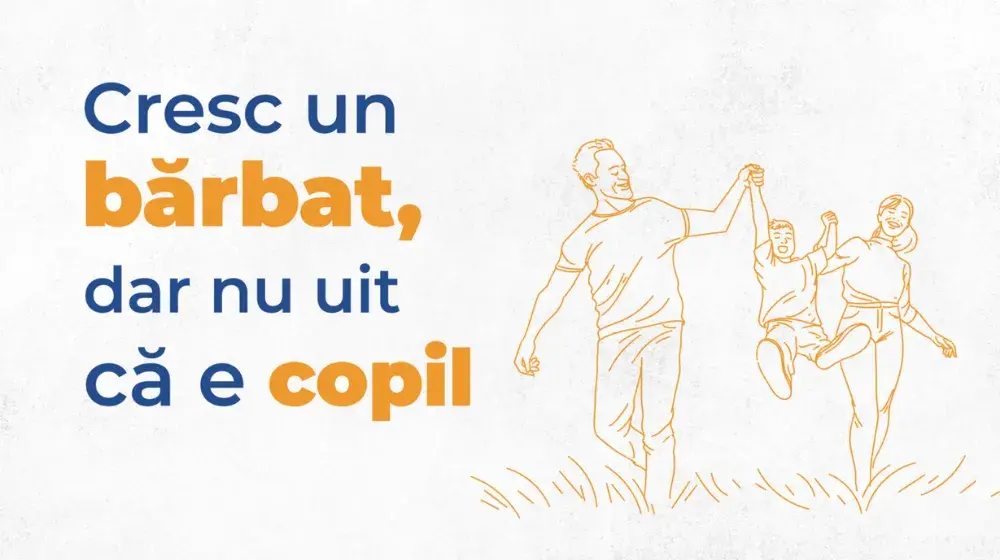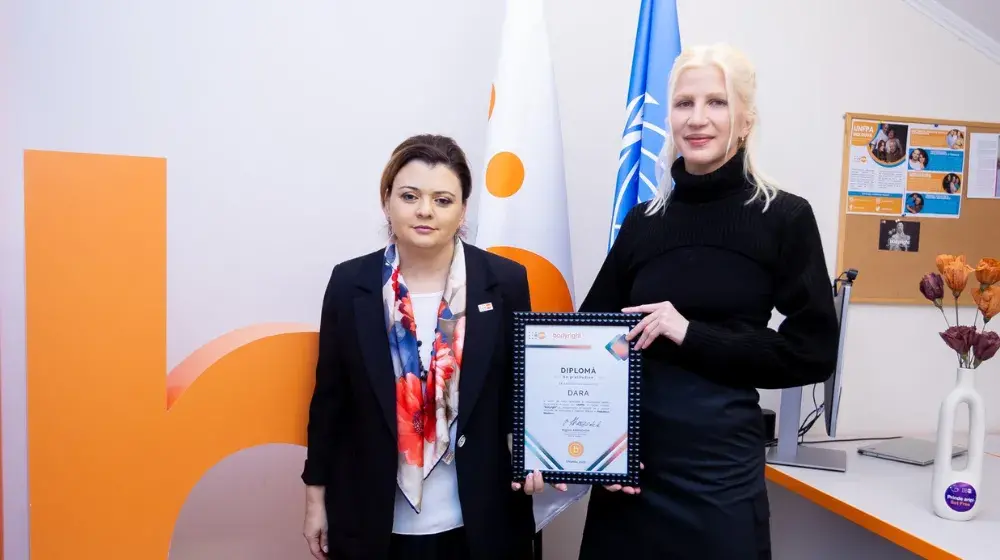Mariana Țibulac-Ciobanu uses her own example to dismantle all prejudices about people with disabilities. She is active and socially engaged and has been a national volunteer at UNFPA Moldova for half a year, where she worked with the team to bring disability issues to the forefront, including from a gender perspective. Mariana has been producing a podcast called ‘Overcoming Prejudices’ for two years now. Her work at UNFPA has helped her broaden the scope of the topics she addresses to include reproductive health, bodily autonomy and gender-based violence.

‘I am one of the people with mobility disabilities in the Republic of Moldova and I know very well what problems they face. I live with these realities on a daily basis, and I am familiar with several success stories as well as gaps in the system. Unfortunately, people in our country have quite a few prejudices and stereotypes towards people with disabilities. Through my podcast, I aim to dismantle these stereotypes,’ says Mariana Țîbulac-Ciobanu.
From a makeshift radio studio in her apartment, Mariana broadcasts the podcast twice a month. Her listeners are people who care about disability issues.
‘We're talking about everything from inclusion and accessibility to family and reproductive health. There are a lot of topics and I try to tackle them in the most innovative way possible. At the end I come up with certain recommendations, either to society, to the families who overprotect these people, or to the authorities – what they should do to ensure that our rights are upheld,’ says the journalist.

Working in a UN agency – a dream come true
Volunteering at UNFPA is a dream come true for Mariana. Here she found a team of professionals with similar visions. In the organisation, she has been responsible for writing various articles and reports about people with disabilities, as well as addressing sexual and reproductive rights issues through the podcast she produces.
She says working at UNFPA gives her the comfort of feeling like a true professional and a real personality. ‘I've never had any limitations here. Another important aspect for me is that UNFPA, like all UN agencies, is an organisation accessible to people with disabilities and offers inclusion, unlike most structures in our country’, says Mariana.
She joined the organisation as a UN Volunteer in November 2021 on a competitive basis. She was delighted to learn that she had been selected, especially as she had a wonderful experience with UNFPA – participating in the ‘Fighting Stigma with Style’ initiative, in which several girls and women with disabilities were involved in a campaign to promote inclusion in the fashion industry.
‘What UNFPA is doing in the area of ensuring gender equality and promoting bodily autonomy concerns me directly. I have the same problems as other disabled women. That's why I've made it my mission to help solve them through the materials I develop and the podcast I produce’, she says.
The volunteer programme Mariana was involved lasted until November this year, during which time she produced several podcasts on sexual and reproductive rights of people with disabilities and debunked existing myths.
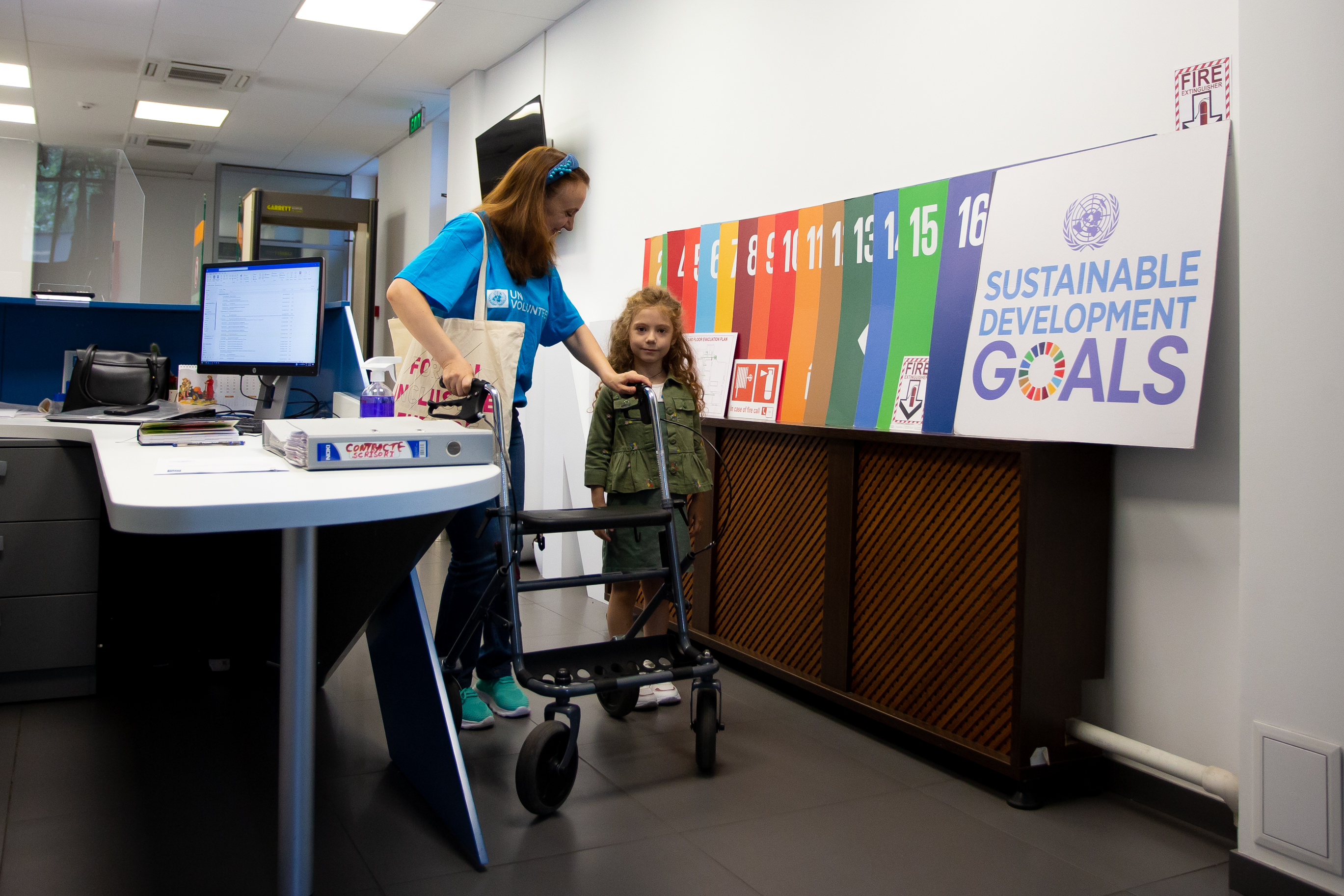
Involved in volunteering initiatives since her student years
Mariana Țîbulac-Ciobanu has been volunteering since she was a student. She lived in a dormitory that housed several young disabled people from the university where she studied. Those who were visually impaired had to ask their classmates to read aloud their homework or notes. Mariana gladly accepted this task and took it upon herself to help her colleagues. With most of them she has a beautiful friendship that has lasted over time. And for many years, Mariana has also been the sound engineer for a magazine dedicated to the visually impaired.
After graduating from the Faculty of History she did a Master's degree, then a PhD, and is now a senior research scientist at the Institute of History.
‘My childhood dream was to become a teacher. After graduating from the faculty of history, I was assigned to do my internship in a village. I was really enjoying being among children in the study hall, but soon I realised that because the education institutions in our country are not accessible, it will be difficult for me to find a companion to help me every time.’
She had to give up this dream and decided to enrol in the School of Advanced Journalism Studies. After graduation she worked for six years in a CSO specialising in the protection of people with disabilities, and later at several newspapers and a radio station. ‘I really enjoyed working at the radio station, but it was a hassle to get there in time to make the recordings. My state of mobility didn't allow me to get to the event quickly and then quickly return to the newsroom to edit’, she says.
Nonetheless, participating in a women's economic empowerment program helped her not to give up on radio and gave her a chance to realize her potential through a podcast – a relatively new format for Moldova. The first edition took place in 2020, and since then Mariana has managed to bring to the public's attention multiple problems of people with disabilities, as well as solutions for them.
According to her, Moldovan society is still rife with prejudices about people with disabilities. ‘The first prejudice is that these people should be isolated – locked in the house or behind the fence so no one sees them. Another prejudice is that they live only by the mercy of the state and are good for nothing. That's not true – in our country there are people with disabilities who are very active and who have put their potential and talents into what they do and have shown us that they can achieve things, sometimes even overcoming their condition,’ says Mariana.
Another stereotype she has heard many times, including from some health workers, is that a woman with a disability is not capable of giving birth and caring for a child. Mariana proved this prejudice wrong with her living experience, currently raising a five-year-old daughter with her husband.
As a disabled person who went through pregnancy and childbirth, Mariana is of the opinion that what a woman with reduced mobility needs first and foremost is accessibility. ‘It's not normal when a woman can't get by herself into a doctor's office which is on the upper floors of a building.
It is not normal that people who have difficulty getting around have to make this effort. You risk falling and injuring yourself and your child. The premises in polyclinics, hospitals, gynaecological clinics must be accessible and properly equipped to meet the needs of people with disabilities’, she says.
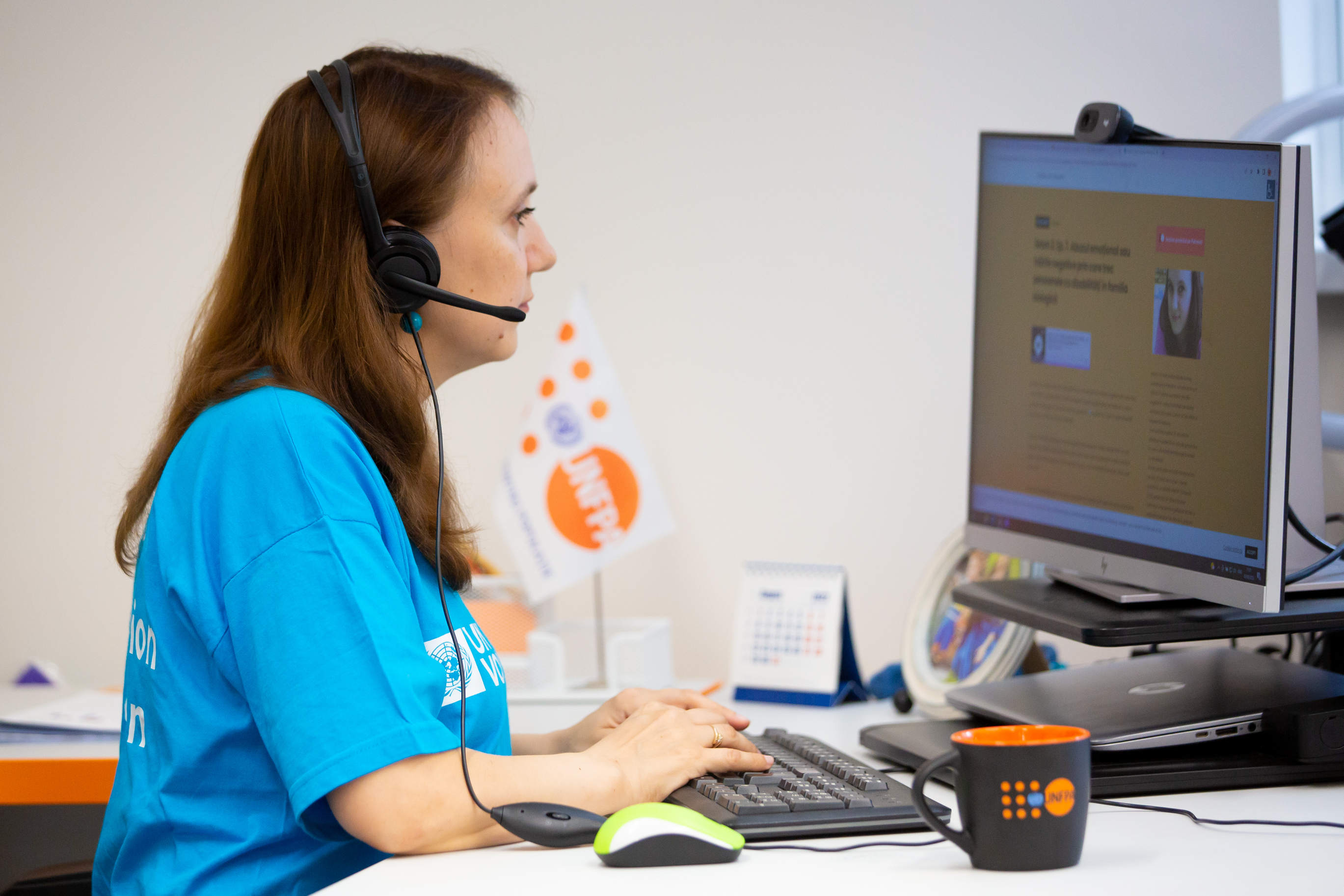
Moldova can become an inclusive society
Mariana Țîbulac-Ciobanu is convinced that women with disabilities can and must succeed. ‘We have many success stories proving that they can succeed. We have women with disabilities in politics, women in research, women with above-average academic achievement, women raising one to four children.’
Even though she is aware that the problems of people with disabilities are far from being sorted out, Mariana Țîbulac-Ciobanu believes that the situation has changed compared to a few years ago. By speaking up and acting together, we can become a more inclusive society where no one is excluded, she believes.

